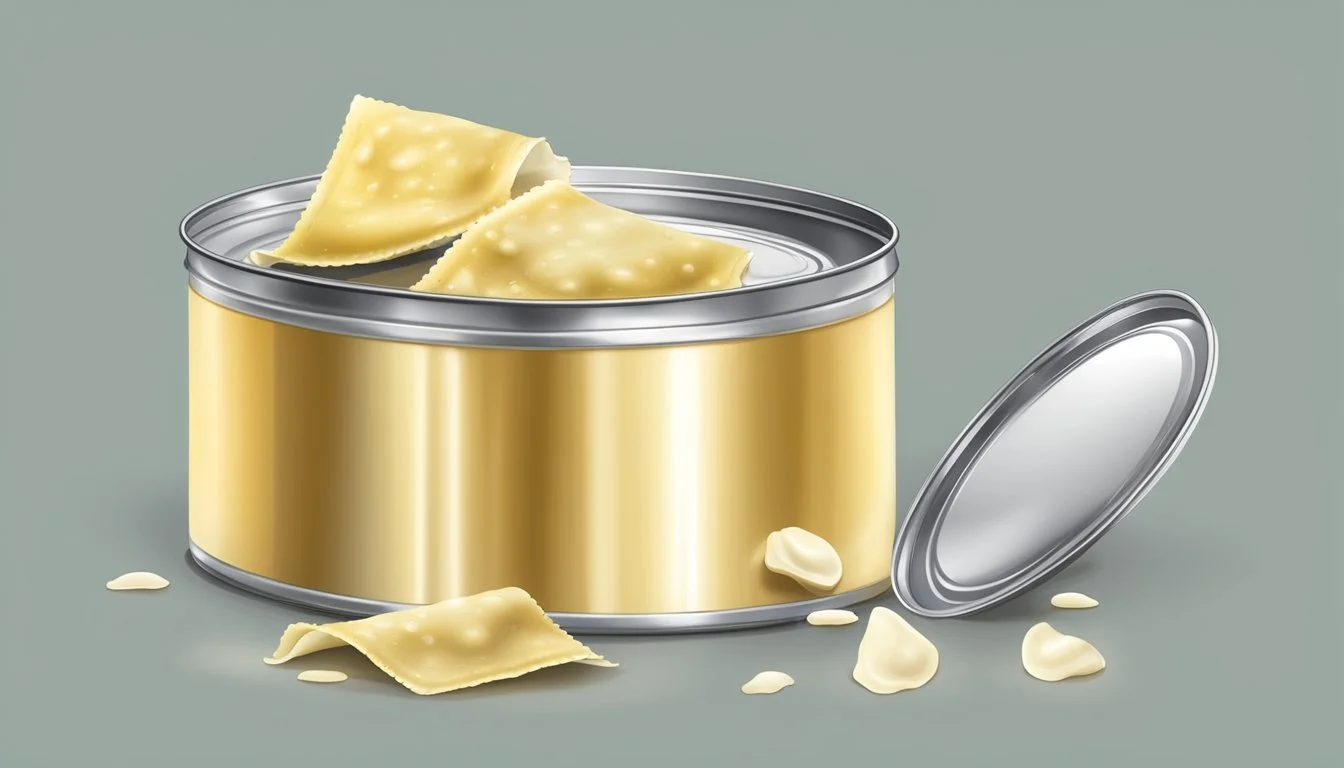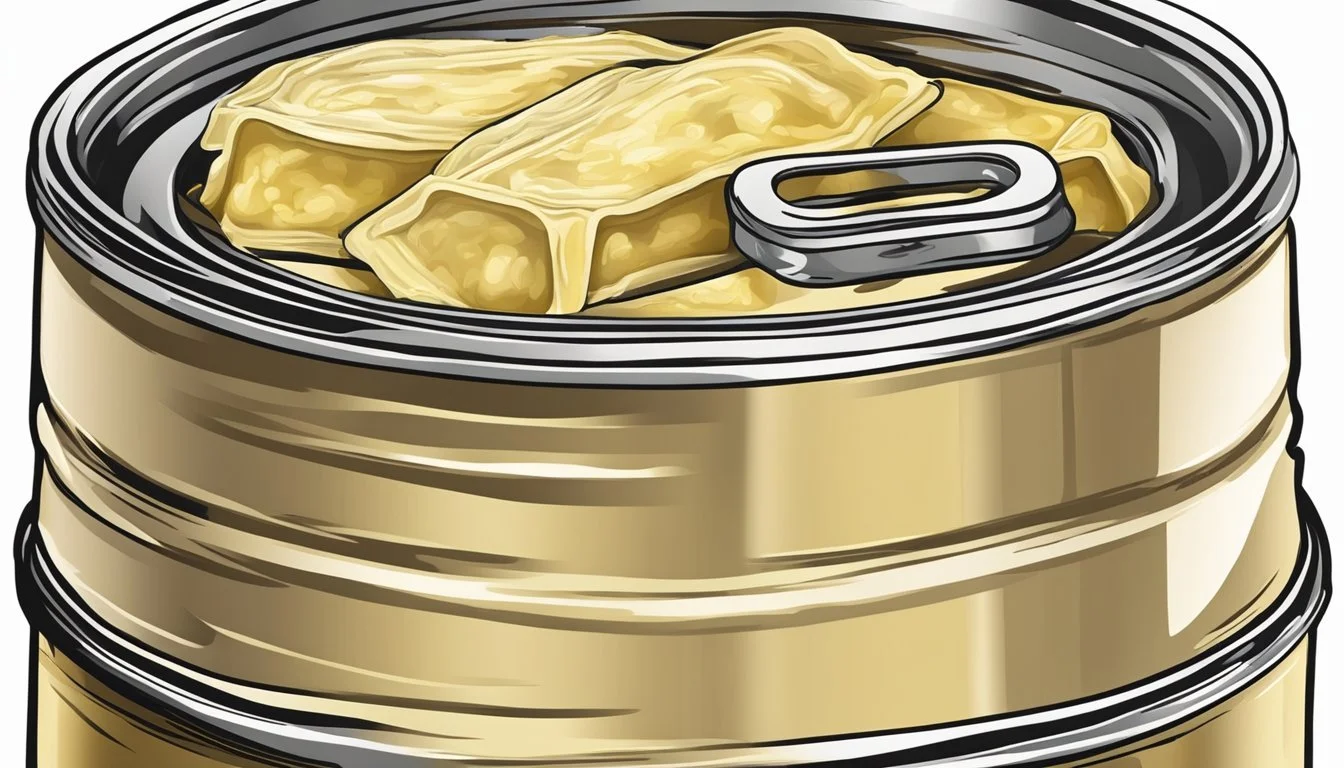Does Canned Ravioli Expire?
Shelf Life and Storage Tips
Canned ravioli is a pantry staple that many rely on for quick and convenient meals, but questions often arise about its shelf life and safety. Canned ravioli usually has a shelf life of 2 to 5 years from the date of manufacturing, and it can still be eaten safely past the expiration date if stored properly. This extended shelf life is due to the canning process, which involves high-temperature treatment to eliminate bacteria and create a vacuum seal that prevents spoilage.
Food safety is always a concern with any preserved item. For canned ravioli, as long as the can is intact without any signs of damage such as swelling, rust, or leakage, the contents are generally safe to consume. Storing the cans in a cool, dry place away from direct sunlight further extends their usability.
Understanding how long canned ravioli lasts and recognizing signs of spoilage can save money and reduce food waste. By ensuring the cans are stored correctly and checked for damage, one can confidently include canned ravioli in meal planning without worrying about health risks.
Understanding Canned Foods
Canned foods, including ravioli, undergo a preservation process that extends their shelf life significantly. This involves the history of canning, the canning process itself, and the role of preservatives.
History of Canning
Canning emerged during the early 19th century as a method to preserve food for military use. Nicolas Appert, a French confectioner, discovered that sealing food in jars and heating them kept the contents from spoiling by killing bacteria.
He was awarded a prize by the French government for his innovation. Louis Pasteur later explained the science behind it, leading to the widespread adoption of canning as a preservation method.
Canning Process and Preservation
The canning process involves placing foods in jars or cans and heating them to a high temperature. This heat treatment kills bacteria, yeasts, and molds that cause spoilage. Once sealed, the environment inside the can is anaerobic, meaning it lacks oxygen, which further prevents microbial growth.
The use of high heat and vacuum sealing ensures that canned goods, like ravioli, can remain safe to eat for years. Proper storage in a cool, dry place enhances their longevity.
Role of Preservatives in Canned Goods
Preservatives are sometimes added to canned foods to further inhibit microbial activity and maintain quality. Common preservatives include salt and acidifiers like citric acid, which create an environment less favorable to spoilage organisms.
These preservatives act synergistically with the heat treatment and vacuum seal to ensure the food remains safe and palatable over extended periods. The balance of preservatives used is crucial, as it impacts both safety and flavor of the canned goods.
By understanding these aspects, one can better appreciate how canned ravioli and other canned foods are preserved and remain safe for consumption long after their production date.
Shelf Life and Expiration Details
Canned ravioli remains edible for a considerable period. However, its peak quality, storage conditions, and expiration dates significantly influence its longevity and safety.
Reading Expiration Dates
Expiration dates on canned ravioli are essential for understanding its best quality time frame. These dates typically include terms like "Best By", "Use By", or "Expiration Date".
Best By Date: Indicates when the product will be at its peak quality.
Use By Date: The last date recommended for using the product while at peak quality.
Expiration Date: The final date the product is expected to be at best quality and safe to consume if stored properly.
Canned ravioli doesn’t instantly spoil past these dates. Instead, the quality gradually diminishes. Therefore, checking the can's integrity and signs of spoilage like rust, dents, or swelling is crucial.
Factors Affecting Shelf Life
The longevity of canned ravioli hinges on several factors:
Storage Conditions: Keeping cans in cool, dry places away from direct sunlight maintains peak quality. Ideal temperatures range between 50-70°F.
Canning Process: High-temperature processing destroys bacteria and seals the ravioli hermetically, ensuring a longer shelf life.
Can Integrity: Cans free from dents, rust, and punctures significantly extend shelf life. Damaged cans may compromise the food’s safety, accelerating spoilage.
In excellent condition, canned ravioli typically has a shelf life of 18 to 24 months. Yet, it may still be safe to eat beyond this period if stored correctly and if the can's integrity is intact.
Storage Recommendations
Proper storage is essential to maintain the quality and safety of canned ravioli. It involves understanding how to store both unopened and opened cans effectively.
Storing Unopened Canned Ravioli
Unopened canned ravioli should be stored in a cool, dry place. Ideal storage temperature ranges between 50°F (10°C) and 70°F (21°C).
Storing at these conditions ensures that the ravioli retains its best quality for 18 to 24 months. Higher temperatures or humid environments can cause the can to rust or bulge, which may compromise the seal.
Avoid direct sunlight as it can heat the cans, leading to spoilage. It is also important to store the cans off the floor to prevent moisture from seeping in. Stacking them neatly ensures that the cans are less likely to be damaged.
Handling Opened Canned Ravioli
Once opened, canned ravioli should be transferred to an airtight container to prevent contamination and deterioration. This step is crucial to maintain food safety.
Refrigerate the contents promptly at temperatures below 40°F (4°C). Opened ravioli in an airtight container can last up to 4 days in the refrigerator.
Avoid storing opened canned ravioli in the can itself, as this can lead to a metallic taste. Any signs of spoilage, such as off smells or discoloration, mean it should be discarded. Always use clean utensils to handle the ravioli to prevent introducing bacteria.
Identifying Signs of Spoilage
Detecting spoilage in canned ravioli is crucial for ensuring it is safe to consume. Key indicators include visual anomalies, unusual smells or tastes, and physical damage to the can.
Visual Inspection
Spoilage can often be identified through a simple visual check. Look for mold, discoloration, or any unusual texture on the ravioli.
If the contents are visible through a glass container or a transparent lid, inspect for any signs of mold growth or darkened areas.
Pay close attention to the can itself. Rust, corrosion, or a bulging can can signal that the ravioli inside has spoiled.
Containers with swelling or leaking should be discarded immediately as these are signs of bacterial activity.
Smell and Taste Assessment
Off-odors are a red flag. When opening the can, a sour or foul smell indicates spoilage.
Do not taste the food if it smells off. Eating spoiled ravioli increases the risk of foodborne illnesses.
If the smell seems normal but there's uncertainty, start by tasting a small amount. An unusual taste can signal that the ravioli is no longer safe to eat.
Trust your senses; if anything seems off, it’s safer to discard the product.
Physical Can Damage
The condition of the can itself is an important warning sign.
A dented can could compromise the seal, creating a breeding ground for bacteria. Inspect cans for any bumps or indents.
Corrosion or rusted areas weaken the can structure, potentially allowing contaminants to enter.
A bulging or swollen can is a major indicator of spoilage due to gas produced by bacterial growth. Any can exhibiting these symptoms should be safely discarded.
Monitoring these signs ensures that you avoid consuming spoiled canned ravioli and maintain food safety.
Health and Nutrition
Eating canned ravioli offers certain nutritional benefits and potential health risks, particularly when considering its expiration date and storage conditions.
Nutritional Value
Canned ravioli provides a convenient meal option with specific nutritional contents. It typically contains protein from the meat filling, carbohydrates from the pasta, and other nutrients such as vitamins and minerals.
Most canned ravioli products also include fat and sodium, which can vary significantly between brands.
Calories: A typical serving can range from 200 to 300 calories.
Protein: Usually around 10-15 grams per serving.
Sodium: Can be substantial, often exceeding 20% of daily recommended intake.
Vitamins and Minerals: Contains small amounts of iron, calcium, and vitamin A.
Opting for low-sodium versions can help manage sodium intake. Reading nutrition labels can provide a clearer picture of specific dietary content.
Considerations for Food Safety
Food safety is crucial when consuming canned ravioli, especially if it is nearing or past its expiration date. Expired canned ravioli can pose health risks due to potential foodborne illnesses caused by bacteria such as Salmonella, E. coli, and Listeria.
Proper storage greatly influences safety. According to the USDA, storing canned ravioli in a cool, dry place can extend its shelf life up to 2-5 years, but ensure the can remains intact and unspoiled.
Signs of spoilage include swelling, rust, or leakage. If any of these are present, the product should be discarded to avoid food poisoning. Always perform a visual and odor check before consumption.




